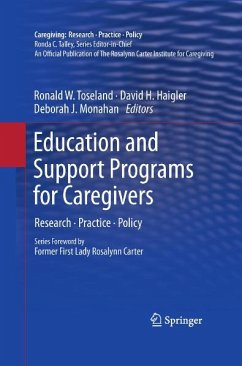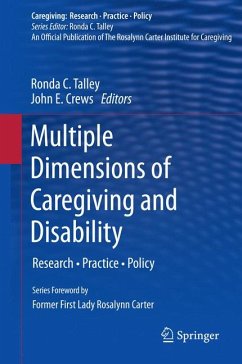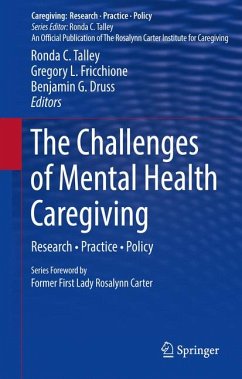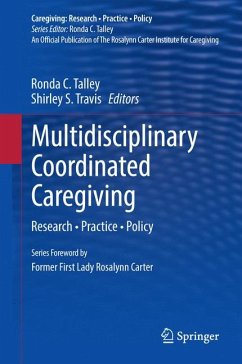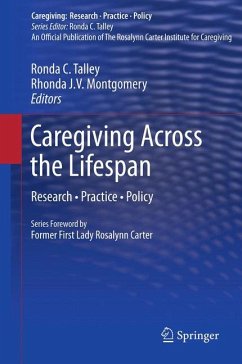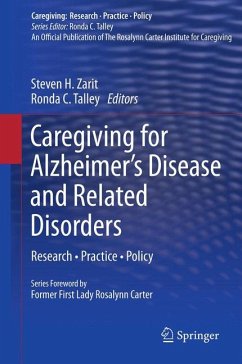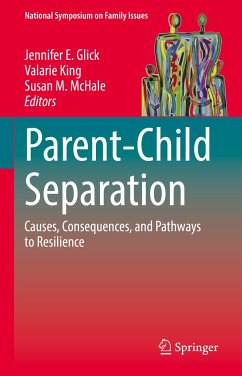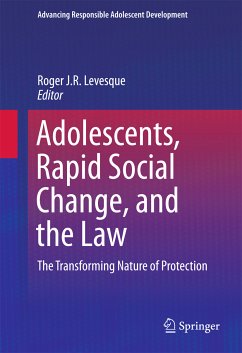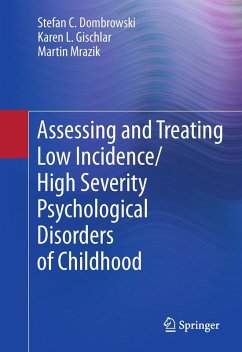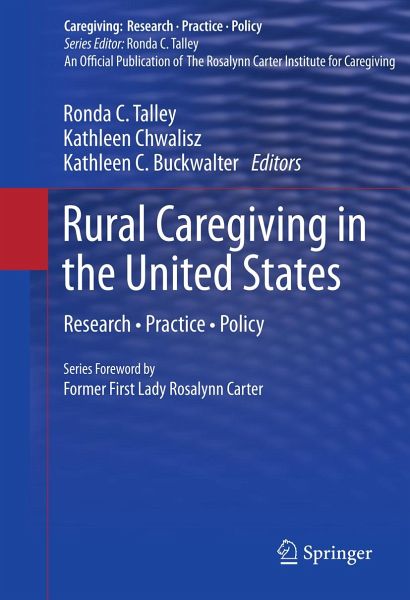
Rural Caregiving in the United States (eBook, PDF)
Research, Practice, Policy
Redaktion: Talley, Ronda C.; Buckwalter, Kathleen C.; Chwalisz, Kathleen
Versandkostenfrei!
Sofort per Download lieferbar
72,95 €
inkl. MwSt.
Weitere Ausgaben:

PAYBACK Punkte
36 °P sammeln!
Caregivers living in rural areas face daunting obstacles. In addition to the isolation and anxiety that many caregivers across the country experience, rural caregivers must also cope with limited access to uncoordinated resources and severe shortages of trained professionals. Although many research, policy, and practice upgrades have been made in response to caregivers' general concerns, the specific problems facing the rural caregiver have been less frequently addressed.Focusing on what is known as well as what is needed - and zeroing in on major subgroups within this diverse population - Rur...
Caregivers living in rural areas face daunting obstacles. In addition to the isolation and anxiety that many caregivers across the country experience, rural caregivers must also cope with limited access to uncoordinated resources and severe shortages of trained professionals. Although many research, policy, and practice upgrades have been made in response to caregivers' general concerns, the specific problems facing the rural caregiver have been less frequently addressed.
Focusing on what is known as well as what is needed - and zeroing in on major subgroups within this diverse population - Rural Caregiving in the United States replaces misconceptions of the nonurban experience with real-life issues, findings, and solutions. For example, this pioneering volume:
Rural Caregiving in the United States offers uniquely knowledgeable perspectives to researchers, practitioners, and graduate students in the caregiving fields, including psychology, social work, nursing, gerontology and geriatrics, medicine, public health, public policy, and educational policy.
Focusing on what is known as well as what is needed - and zeroing in on major subgroups within this diverse population - Rural Caregiving in the United States replaces misconceptions of the nonurban experience with real-life issues, findings, and solutions. For example, this pioneering volume:
- Covers a broad range of issues unique to rural caregiving, including research, education/training, policy, and practice.
- Identifies specific needs related to education, training, and support for rural caregivers.
- Examines both the positive and negative effects of rural living on caregivers as well as patients.
- Discusses the importance of in-home care in lieu of scarcer forms of for-profit care (e.g., hospitals).
- Addresses not only discrepancies between rural and urban health care systems but racial and ethnic disparities within rural health care.
- Explores the advantages of using information technology to address rural health care limitations.
Rural Caregiving in the United States offers uniquely knowledgeable perspectives to researchers, practitioners, and graduate students in the caregiving fields, including psychology, social work, nursing, gerontology and geriatrics, medicine, public health, public policy, and educational policy.
Dieser Download kann aus rechtlichen Gründen nur mit Rechnungsadresse in A, B, BG, CY, CZ, D, DK, EW, E, FIN, F, GR, HR, H, IRL, I, LT, L, LR, M, NL, PL, P, R, S, SLO, SK ausgeliefert werden.



